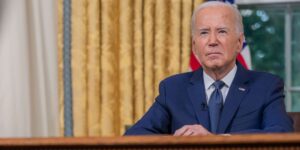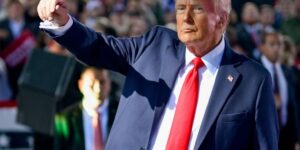Great Awakening Breached Racial Chasm, Humanized Slaves, Awakened Americans to Reality of Evil
The brilliant historian, Dr. Thomas Sowell, who happens to be black, points out that although slavery has been a world-wide institution practiced by peoples and civilizations for thousands of years, it only became controversial in the 18th century in Western civilization and particularly in America. In the chapter entitled “Twisted History” in his book, The Thomas Sowell Reader, he writes,
Slavery was just not an issue, not even among intellectuals, much less among political leaders, until the 18th century—and then it was an issue only in Western civilization. Among those who turned against slavery in the 18th century were George Washington, Thomas Jefferson, Patrick Henry and other American leaders. You could research all of 18th century Africa or Asia or the Middle East without finding any comparable rejection of slavery there.
Walter E. Williams, black professor of economics at George Mason University, has made the same point and commented that the unique characteristic of slavery in America—as opposed to the rest of world history—was the “moral outrage” against it.
The Source of this Moral Outrage
In this article, I intend to show that this “moral outrage” against slavery in America was a product of the First Great Awakening that ebbed and flowed between 1726-70. I will argue that this Awakening, that revitalized Christianity in Colonial America, unleashed the spiritual and moral forces that ultimately ended slavery in America and throughout the Western world.
As a result of the Great Awakening, the racial chasm was breached, slaves were humanized, and whites were awakened to the evils of slavery. The Great Awakening, indeed, produced the “moral outrage” mentioned by Sowell and Williams, and it marked the beginning of the end of slavery in America.
George Whitfield Reaches Out to Blacks in His Preaching
The revivalists of the Great Awakening targeted blacks, both slave and free, with their message of a new birth and new life in Jesus Christ. None were more purposeful in this than George Whitefield, the fiery, British revivalist, who has been called “America’s Spiritual Founding Father.”
Whitefield, for example, preached numerous times from the steps of the Philadelphia courthouse to crowds of 10,000 and more, when the population of the city was only 13,000. Among those listening was Benjamin Franklin who became a close friend and business partner with Whitefield.
In the crowds were also numerous blacks who were especially receptive to the evangelical, revival message that he preached. This was borne out by the fact that, after preaching his farewell sermon and retiring to his lodgings, he noted in his Journal, “Near 50 Negroes came to give me thanks for what God had done for their souls.” Whitefield considered this an answer to prayer, saying, “I have been much drawn in prayer for them, and have seen them wrought upon by the word preached” (Hyatt, Pilgrims and Patriots, 94).
One black woman who was converted under Whitefield’s ministry became discouraged and prayed that the Lord would manifest Himself to her. Shortly thereafter both she and Whitefield were in a meeting where a Baptist minister was preaching. Whitefield said that the word came with such power that the woman began to cry out and “could not help praising and blessing God.”
When some criticized her for interrupting the preacher, Whitefield came to her defense saying he believed that, in that hour, “the Lord Jesus took a great possession of her soul.” He went on to say, “I doubt not, when the poor Negroes are to be called, God will highly favor them, to wipe off their reproach, and show that He is no respecter of persons” (Hyatt, Pilgrim and Patriots, 95).
It is obvious that in these revival meetings blacks and whites were worshipping together. This should not be surprising, for in genuine spiritual awakening, the Holy Spirit breaks down racial and cultural barriers, and this occurred in the Great Awakening. Mark Noll, professor of church history at Wheaton College, confirms this, saying, “It was under the impulse of the revival that the chasm between white and black cultures was breached.”
Whitefield’s impact among the black populace of Colonial America is indicated by the moving tribute that a young black woman, Phillis Wheatley, wrote at the time of his death in 1770. Wheatley heard Whitefield preach in Boston on more than one occasion and was profoundly impacted by his ministry (Hyatt, Pilgrims and Patriots, 94-95).
Wheatley, who became America’s first published black poet, was 17 years old when she wrote the poem about Whitefield. The words of her poem express the strains of equality she heard in the Gospel he preached. It reads in part,
Thou didst in strains of eloquence refined,
Inflame the heart and captivate the mind.
The greatest gift that even God can give,
He freely offered to the numerous throng.
Take him, ye Africans, he longs for you,
Impartial Savior is his title due.
Wheatley obviously quoted directly from Whitefield’s preaching in her poem. Knowing Whitefield’s passionate form of preaching, one can picture him crying out to the blacks in his audience, “Take him, ye Africans, he longs for you.”
This must have been the case in one Philadelphia meeting where Whitefield’s message left many blacks weeping and in awe. One black woman said that he must have been in a trance and insisted that, “Jesus Christ must have told him what to speak to the people or else he could not speak as he did” (Hyatt, Pilgrim and Patriots, 95).
Other Revivalists Target Blacks in Their Outreaches
Further south, Samuel Davies, a Presbyterian minister who served as president of the College of New Jersey (now Princeton University), gave special attention to blacks, including slaves, during his time of ministry in Virginia. He was greatly encouraged by their enthusiastic response to the Gospel and wrote, “My principal encouragement of late has been among the poor negro slaves; in the land of their slavery they have been brought into the glorious liberty of the sons of God.”
Davies not only preached to blacks, both slave and free, he treated them as brothers and sisters in Christ, inviting them to share in regular church observances including the Lord’s Supper. In 1757, he wrote,
“What little success I have lately had, has been chiefly among the extremes of Gentlemen and Negroes. Indeed, God has been remarkably working among the latter. I have baptized 150 adults; and at the last sacramental solemnity, I had the pleasure of seeing the table graced with sixty black faces” (Hyatt, Pilgrim and Patriots, 95).
Back to the north, Gilbert Tennent was delighted that during a preaching tour in Massachusetts, “multitudes were awakened, and several received great consolation, especially among the young people, children, and Negroes” (Hyatt, Pilgrim and Patriots, 93). Jonathan Edwards, in his account of the Awakening in his hometown of Northampton, mentions “several Negroes” who appeared to have been truly born again.
Anti-Slavery Sentiments Are Aroused
Whitfield has been criticized for not opposing the institution of slavery. That is a valid criticism, but Whitfield saw his purpose to be in getting people ready for the next world, not improving their lot in this one. He preached in the light of eternity, and in his thinking, a slave on his way to heaven was far better off than a king on his way to hell.
In this sense, Whitefield treated everyone the same. Rich and poor, slave and free, male and female were all in the same predicament—guilty sinners before God—with only one solution for all, that being faith in Jesus Christ. This had a leveling effect on American society for tens of thousands, both black and white, heard Whitefield preach and he became the most recognized figure in Colonial America.
Whitefield’s passion to reach American blacks with the gospel breached racial barriers and opened the way for others to take the work of racial reconciliation further, and they did. Historian, Benjamin Hart, has noted, “Among the most ardent opponents of slavery were ministers, particularly the Puritan and revivalist preachers.”
These “ardent opponents of slavery” included the followers of Jonathan Edwards who expanded on his idea of the essential dignity of all created beings and applied it to the blacks of Colonial America.
Samuel Hopkins, for example, who had been personally tutored by Edwards, sent a pamphlet to every member of the Continental Congress asking how they could complain about “enslavement” to Great Britain and overlook the enslavement of so many blacks in the colonies. Noll says, “In this attack on slavery Hopkins was joined by other followers of Edwards, including Levi Hart in Connecticut, Jacob Green in New Jersey and Edwards’ own son, Jonathan Jr., who was also a minister in Connecticut.”
Blacks Join the Patriotic Protests
The Awakening thus led to the humanizing of blacks and a general awakening to the evils of slavery. It also led to the emergence of new, black congregations and preachers, among those who were enslaved and those who were free. This then led to many blacks identifying with the struggle for freedom from Great Britain and becoming part of the patriotic protests, especially in New England.
For example, at the time of the Boston Massacre in April of 1770, a large black man, Crispus Attucks, was one of the leaders in the protests against the occupation of Boston by British troops. An escaped slave who had settled in Boston, he was one of those of those killed that day by British soldiers. A poem written in his honor refers to him as, “Leader and voice that day; The first to defy and the first to die.”
The positive ripples from the Awakening also opened the way for blacks to later serve in the Revolutionary War. David Barton has provided documentation showing that numbers of blacks were given honorable discharges and pensions, and some were honored with complete military funerals for their service in the War.
The anti-slavery sentiments unleashed by the Awakening were so strong in the North that when separation with Great Britain came in 1776, several states, including Pennsylvania, Massachusetts, Connecticut, Rhode Island, Vermont, New Hampshire and New York, immediately took steps to formally abolish slavery, something they could not do under King George III.
Although there was more resistance in the South, where a monetary motive prevailed, the anti-slavery sentiments released by the Great Awakening flowered into the abolition movement of the next century, which, as Dr. Timothy Smith has shown, had its roots in American revivalism, starting with the First Great Awakening (Hyatt, Pilgrims and Patriots, 97).
The Great Awakening Moved America in the Right Direction
The impact of the Great Awakening led to most Americans, especially in the North, abhorring slavery. It also put those in the South on the defensive. In their heart of hearts, they knew they were wrong even as they struggled to produce moral arguments defending the institution.
By the time of the Constitutional Convention in 1787, most Founding Fathers had come to agree with John Adams, who said,
“Every measure of prudence … ought to be assumed for the eventual total extirpation of slavery from the United States. I have throughout my whole life held the practice of slavery in abhorrence.”
Yet, despite the impact of the Awakening, the slavery issue was not settled at the nation’s founding. The institution had become so entrenched and entangled with the economy and culture of the South that the Founding Fathers were unwilling to risk a fragmented Union by outlawing the institution. Sowell has said:
Deciding that slavery was wrong was much easier than deciding what to do with millions of people from another continent, of another race, and without any historical preparation for living as free citizens in a society like that of the United States, where they were 20 percent of the population. It is clear from the private correspondence of Washington, Jefferson, and many others that their moral rejection of slavery was unambiguous, but the practical question of what to do now had them baffled. That would remain so for more than half a century.
To their credit, the Founding Fathers outlawed slavery in the newly formed Northwest Territory and in any new states to be formed. They also worded the Constitution in such a way that the rights guaranteed therein could not be denied to anyone based on race or skin color.
Nonetheless, their concessions to the Southern states sparked further “moral outrage” and warnings of divine judgement. This moral outrage would flower into the abolition movement of the next century and finally lead to the end of slavery in America, but only after another Great Awakening and a Civil War.
Concluding Thought
This is a fact: It was a revitalized Christianity that provided the spiritual and moral forces that would eventually bring an end to slavery in America. Yes, it was the Great Awakening that produced the unique “moral outrage” of which Sowell and Williams have written.
This is so because only true Christianity changes hearts and produces a people characterized by peace and compassion. This is why it will take more than political and legislative activism to resolve racial tensions in contemporary America.
We ought to take a lesson from history and pray for another Great Awakening across the land. We should recall the words of Samuel Adams, known as the Father of the American Revolution, who as governor of Massachusetts, proclaimed a Day of Prayer in 1795 in which he asked the people to “Pray that the peaceful and glorious reign of our Divine Redeemer may be known throughout the whole family of mankind.”
This article was derived from Dr. Eddie Hyatt’s book, Pilgrims and Patriots, which is available from Amazon and his website at eddiehyatt.com. Dr. Hyatt has also produced a PowerPoint presentation called “America Reawakening” that he shares in churches, schools, colleges and other venues. To contact him, send an email to dreddiehyatt@gmail.com.







































